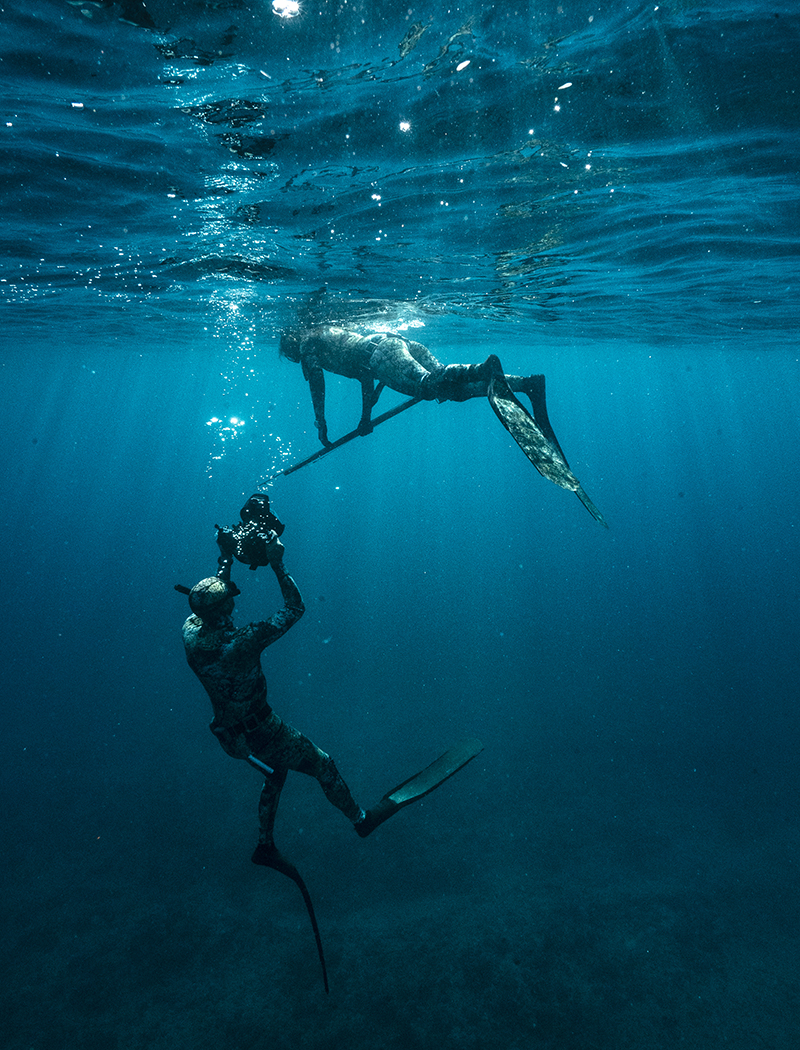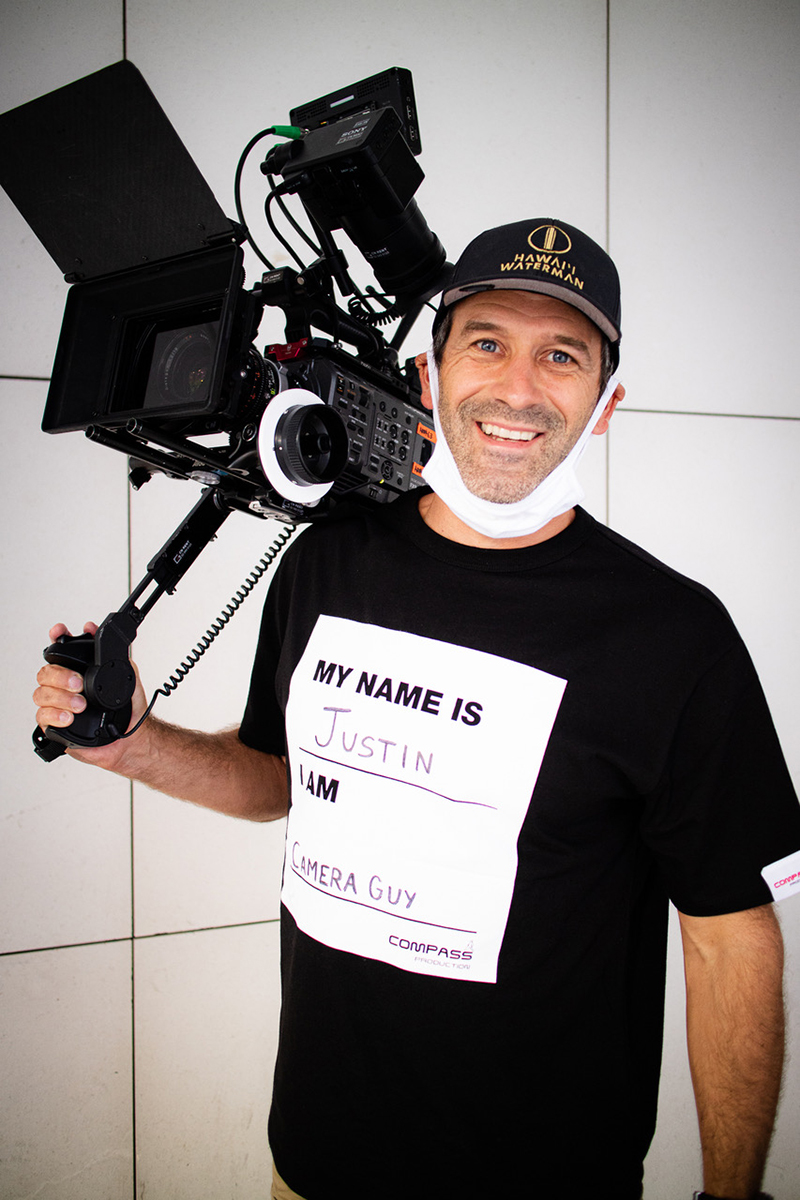Get Involved
Your knowledge, experience and expertise can help students thrive. From supporting them as they decide to come to SCSU to mentoring them as they navigate their next career step.
A career spent behind the camera has opened up the world for Justin Turkowski.
The Cold Spring, Minnesota, native enrolled in St. Cloud State University in 2003, but his connection with SCSU dates back further than that.
“I was always a part of St. Cloud State. My mom worked at St. Cloud State and I was always on campus since I was a little kid, being babysat,” he said. “I always went to the hockey games. So then after high school, I thought it fitting to go to St. Cloud State.”
He enrolled in the University’s mass communications program, and quickly set his own course. Turkowski would be on campus for the fall semesters, before heading out to Salt Lake City, Utah, over winters to shoot snowboarding. He’d then return to St. Cloud and attend classes over the summers to make up for missing the spring semesters. He also took advantage of SCSU’s study abroad program, spending a semester at Southern Cross University in Australia.
“I already kind of had the travel itch because I was going to Salt Lake City often,” Turkowski said. “But then Australia really opened my eyes to expanding the world.”
Packing all those experiences into just four years, he earned his bachelor’s in 2007 from SCSU. At first Turkowski stayed in St. Cloud to pursue his master’s while working with former SCSU media specialist Jim Bertram on video production. Then, the travel bug kicked in once again. Turkowski said he “jumped around the world and the country” for a while, before taking a full-time job as a camera operator for Intermedia Outdoors in Brainerd, Minnesota. By 2009 he decided freelancing full time was a better fit, and the rest was history.
Turkowski said he “jumped around the world and the country” for a while, before taking a full-time job as a camera operator for Intermedia Outdoors in Brainerd, Minnesota. By 2009 he decided freelancing full time was a better fit, and the rest was history.
“Basically my whole entire career, I’ve freelanced and been my own boss,” he said. “I have to purchase my own equipment, purchase my own insurance, all those different things.”
Turkowski works in camera operating, editing, producing and directing as a freelancer. He’s worked on projects with everyone from Jason Momoa to Gordon Ramsay, and has created branding content for brands such as Patagonia and YETI, among many others. Since moving to Hawaii in the early 2010s, he’s learned the skill of underwater diving and transferred that into underwater cinematography.
“I think what kind of clicked for me is that I've carried around a camera my whole life. I'm really adventurous. And I like to stay active and I like to do things. So when I shot professional snowboarding, that satisfied me because we were on snowmobiles, we were snowboarding. When I worked for the Outdoor Channel, I really liked it because we were hiking mountains, we were elk hunting,” he said. “I was really able to be there in the moment, doing these activities with these people and capturing it. So underwater — since moving to Hawaii, I've really felt like a kid again, because I never knew the ocean. So now, I love just going out and diving and shooting underwater. It incorporates aspects of things I love to do, places I love to go and the work I love to do.”
Turkowski’s favorite projects to work on are ones involving his wife: professional freediver, spear fisher and chef Kimi Werner. Together they worked on the documentary “The Last of the Sea Women,” which is a “deep dive into the culture of the Haenyeo, the South Korean fisherwomen who have been harvesting seafood for their communities for centuries.” Turkowski handled the underwater as well as some of the topside cinematography for the film, and ended up being part of the team to win a Critics Choice Documentary Award for best cinematography.
“I realized there it’s a really big deal when Jerry Seinfeld was next to me and Ron Howard was there for his film,” he said. “And I was just like, ‘Wow, this is a much, much bigger thing than I thought.’ So that was really exciting.”
The global COVID-19 pandemic had a significant impact on Turkowski’s industry. Large teams weren’t able to travel and be in the same locations at the same time as easily, changing the scope on productions. Some of those changes have carried on in the years since.
“Working together wasn't as easy. So much of the work nowadays, it happens remotely. You're relied on to be a photographer, a cinematographer and editor doing audio — really massive one-man-band stuff,” he said. “Those are things I learned at St. Cloud State, doing the news and things like that — where you're going out with just you and a reporter or sometimes just you, and you need to do it all yourself. I gained a lot of those skills at SCSU and then developed those as a freelancer.” At the time of his interview in summer 2025, Turkowski was preparing to head to Alaska to do some marketing for YETI’s YouTube channel.
At the time of his interview in summer 2025, Turkowski was preparing to head to Alaska to do some marketing for YETI’s YouTube channel.
“Basically I'm producing it, I'm booking my flights, I'm directing it, I'm shooting it — and then I hand over the footage to their team in Texas and they edit it. They won't have a representative even there nowadays where, I have some pre-production meetings with them, but everything is kind of on my shoulders to go there, to execute it, to shoot it, and then to turn in the footage,” he said. “That's a lot of the expectations nowadays, which I really love. It gives you the freedom to do things. And I just like having trust being put on my shoulders.”
Turkowski encouraged aspiring cinematographers and filmmakers to stick with it and be authentic.
“I think some of the biggest advice is be yourself and do your own work, because I think that shines through the most. Where I've seen some of my success is — I don't think I'm the best artist or the best cinematographer, the best editor, producer, director at all — but I know that I'm gonna show up to work on time and I'm going to work as hard if not harder than everybody else there. I'm always going to be working hard,” he said. “Showing up with a smile and being kind, I think are some of the biggest aspects. You work with so many different people, and you can work with some really great artists and some really hardworking people, but if you're not kind and you don't really have a good heart, a lot of people aren't going to want to work with you on set.”
It’s important to Turkowski that his work highlights the good in the world — especially the natural world.
“I hope that my impact creates a positive change in the world — making people think about the environment, think about each other, think about having a good heart,” he said. “A lot of the work that Kimi and I do is really centered around sustainability. The film ‘Last of the Sea Women’ is really a film that is about preserving culture, about taking care of the oceans, and about taking care of our elders. And I think that's some of the most important things that I love to do.
“I don't know how much I agree with the amount of time that people spend on screens. So if I'm going to create something that is on a screen, I want it to be impactful and do good in the world."
Your knowledge, experience and expertise can help students thrive. From supporting them as they decide to come to SCSU to mentoring them as they navigate their next career step.
Keep up-to-date with the latest news and research from the University, connect with local alumni and attend events, workshops and seminars.
Whether you are making a difference in your community, bringing about change to your industry or shaping the lives of those around you. We want to hear from you.